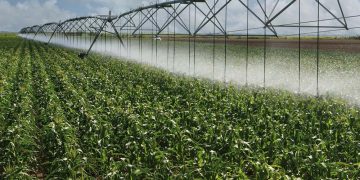
As the country charts forward towards the realization of its much-anticipated endeavor, Vision 2030, it has become evident that many rural areas in Namibia continue to experience an alarming rate of rural to urban migration.
Rural to urban migration is defined as the movement of people from the countryside (rural areas) to towns and cities in search of better opportunities and living conditions.
This type of migration has several implications, most prominent of which is the uncontrolled growth of populations in towns or cities and mushrooming informal settlements, which places significant pressure on municipalities to deliver services such as sanitation, electricity, water, housing, roads, and other infrastructure. Urban migration also leads to the depopulation of rural areas as the working age groups (18 – 55 years old) move to urban areas in search of employment opportunities, creating a short of much needed manpower to carryout Agricultural operations.
To this end, Namibia’s rural areas are usually characterized by a composition of children (1 to 17 years) and elderly people (60 and 60 + years) who are involved in primary agriculture such as dry land crop production, small-scale horticulture production and the rearing of livestock.
To address the challenges associated with rural to urban migration, it is about time that collective efforts are directly towards using agriculture as a mechanism to transform rural areas and maximize on the opportunities this unrealized sector offers. At national level, we need to develop strategies that consider grass root level contexts and identify possible courses of action that can be implemented to address issues aligned to specific Agroecological zones.
The following are suggestions that can be used to address challenges associated with urban migration:
- Each region should undergo an in-depth assessment to determine possible projects that can be introduced or revived in targeted rural areas. For example, an assessment focusing on the Zambezi, Kavango East & Kavango West regions would reveal that these regions, collectively contribute about 34% towards the local production volumes of horticultural products. To this end, local farming communities in these regions could benefit from capacity building interventions that aim at equipping them with information on the importance of being a registered producer, identifying the right crop varieties needed by respective markets and production forecasts of the market to ensure that production responds to market patterns.
- Moreover, comprehensive projects that support value chain production stages should be introduced to support primary agriculture involving the tilling of land and rearing of livestock as well as processing and packaging plants that add value to raw commodities. The inclusion of a processing and packaging plant in key production rural areas serves as an employment creation strategy in rural areas. This could create much needed jobs in the production, harvesting, sorting, and packaging of commodities. These projects set up in rural areas must have a focus on employing locals and upscaling their knowledge and skills.
- Furthermore, an emphasis on the importance of Organized Agriculture is required as well as assistance to farmers to secure markets avenues for their produce through strategies such as the “Buy Local” and ensuring that policies such as the Import Ban policy are implemented. This could entice more young people to be involved in Agriculture.
In conclusion, Agriculture is a tool that can be used to unlock the potential of rural areas, stimulate economic activities, create employment opportunities, and consequently reduce the rate of rural to urban migration. The development of rural areas can also address social issues such as crime that can be a direct result of the lack of basic necessities such as food.
Lastly, this is a call for action for us to develop our agriculture sector in rural areas in order to be food secure as a Nation.
* Hanks Saisai is Technical Advisor: Crops & Poultry at Agribank













